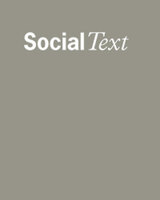
In this special issue, scholars—several of whom are adoptive parents—from a variety of disciplines focus on the culture and politics of transnational adoption, exploring relationships between the sending and receiving nations. Until the mid-1970s, adoptive families were pressured to forget the child’s past and birth culture and to create “as if” biological families. Since then, the culture of adoption has moved dramatically toward openness, generating preoccupations with origins and loss, as well as new kinds of border-crossing movements such as orphanage visits, homeland journeys, and culture camps established by sending nations now eager to embrace the adoptees. This collection of essays examines the complex interplay of race, culture, identity, kinship, and belonging in this contemporary form of family building.
Contributors. Lisa Cartwright, Claudia Fonseca, Cindi Katz, Eleana Kim, Toby Alice Volkman, Barbara Yngvesson

We are a world of travelers. Technologies have enabled us to connect with others around the world at incredible speed, and now both business and pleasure operate on a global scale. The process of getting from point A to point B is therefore of more interest than ever, and Gregory Votolato here charts the history of that journey in all its complexity and variety.
From limousines to canoes to the Apollo spacecraft, Votolato chronicles the ever-evolving design of vehicles, nautical crafts, and other objects of transportation. Transport Design explores the relationship between mass transportation and the travel experience, probing such issues as design styles, economics, entertainment, and, most importantly, customized comfort. Elements such as nineteenth-century railway sleeping couches or the heated car seats of today, Votolato demonstrates, were among the pioneering technologies that set the precedent for personal home and office furnishings. Ultimately, Transport Design contends that today’s pressures of global commerce and environmental threats demand a radical reappraisal of how and why we travel.
A compelling and readable study, Transport Design is a must-have for transport design scholars, transit buffs, and reluctant commuters alike.

In this captivating and whimsical novel, the German novelist and critic Thomas Mann is visiting his tailor, Klaus, to be measured for a new overcoat, but his mind is full of thoughts of his new novel and meditations on the state of Europe after World War I. His tailor, though, entraps him in wily dialogue with mysterious claims about angels threading a strand of their hair through all of God’s creations. Mann becomes further entangled with this provocative artisan through a mysterious dream in which he is asked to draft a contract for the Rights of Devils.
At the same time, the impoverished mother of five-year-old Marci Tamás, living in a tiny Hungarian village, struggles to find the little boy a winter coat. Marci has stopped growing, so the coat she finds—belonging to a former circus dwarf—should suffice for life. Only the coat has a life of its own, as Marci soon finds out. That’s not all: he discovers a mysterious little white elephant in the family courtyard, which no one else can see. Determined to save the family’s three piglets from being slaughtered, he enlists this strange creature in a daring collective escape.
Written by one of Hungary’s most audacious literary voices, Thomas Mann’s Overcoat is at once a homage to the great German novelist as well as an Ars Poetica that embraces excess, whimsy, and folk poetry and refuses the strictures of realism.

—Paul Starr, excerpted from his conclusion in "Transforming American Medicine: A Twenty-Year Retrospective on The Social Transformation of American Medicine"
Paul Starr’s Controversial Vision
In the early 1980s, as America stood at a crossroads—between New Deal liberalism and the conservatism of "the Reagan Revolution"—so too did American medicine and health care. Engaging this critical moment, Paul Starr’s The Social Transformation of American Medicine stimulated scholars across the disciplines to take stock of medicine’s historical and future trajectories. Starr’s analysis of American health care and medicine, undertaken in the context of broad contemporary societal, political, and cultural forces, earned him the Pulitzer and Bancroft Prizes, as well as garnering enduring public acclaim. Indeed, twenty years after its publication, The Social Transformation of American Medicine is now a standard in disciplines from health law to political science and history.
Despite its undeniable import, Starr’s book still provokes argument and strong reaction on all sides, and the question that has puzzled readers since the grand synthesis appeared remains: whether to praise or to criticize it. According to historian Keith Wailoo, health lawyer Timothy Stoltzfus Jost, and political economist Mark Schlesinger, coeditors of "Transforming American Medicine: A Twenty-Year Retrospective on The Social Transformation of American Medicine," a new special double issue of the Journal of Health Politics, Policy and Law, the answer appears to be to do both.
How Does the Vision Hold Up?
Rife with criticism, praise, and in-depth analysis of Starr’s work, this lengthy special issue brings together scholars from many disciplines to offer a comprehensive assessment of the life, the times, the promise, the problems, and the paradoxes of The Social Transformation of American Medicine. Contributors think critically about the problem of the grand narrative, about why doctors and health lawyers loved the book, about why historians reacted to it with ambivalence, about why its themes resonated as they did, and finally about how the political and policy landscape of health care has shifted in the last two decades. Additionally, the issue includes an extensive précis of salient parts of The Social Transformation of American Medicine and concludes with a contentious essay in which Starr himself responds to some of the criticism leveled at him in the preceding pages.
With American medicine and health care now at another crossroads—a relentless rise in medical spending on one side, and a persistent sense that Americans are not getting good value for their health care dollar on the other—the issues that Starr originally highlighted (the rise of medical authority and the elaborate dance among doctors, the state, and the corporation) are still of vital importance. "Transforming American Medicine: A Twenty-Year Retrospective on The Social Transformation of American Medicine" vigorously continues the discussion of medicine’s past, present, and future that Starr’s book set in motion.
Contributors. Gloria J. Bazzoli, Lawrence P. Casalino, Stefan Gildemeiste


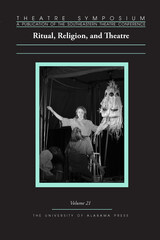
Whether or not theatre arose from ritual and/or religion, from prehistory to the present there have been clear and vital connections among the three. Ritual, Religion, and Theatre, volume 21 of the annual journal Theatre Symposium, presents a series of essays that explore the intricate and vital relationships that exist, historically and today, between these various modes of expression and performance.
The essays in this volume discuss the stage presence of the spiritual meme; ritual performance and spirituality in The Living Theatre; theatricality, themes, and theology in James Weldon Johnson’s God’s Trombones; Jordan Harrison’s Act a Lady and the ritual of queerness; Gerpla and national identity in Iceland; confession in Hamlet and Measure for Measure; Christian liturgical drama; Muslim theatre and performance; cave rituals and the Brain’s Theatre; and other, more general issues.
Edited by E. Bert Wallace, this latest publication by the largest regional theatre organization in the United States collects the most current scholarship on theatre history and theory.
CONTRIBUTORS
Cohen Ambrose / David Callaghan / Gregory S. Carr
Matt DiCintio / William Doan / Tom F. Driver / Steve Earnest
Jennifer Flaherty / Charles A. Gillespie / Thomas L. King
Justin Kosec / Mark Pizzato / Kate Stratton
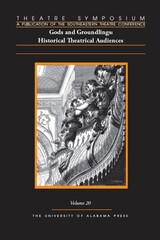
transvestite theatre, Annie Oakley and the disruption of Victorian audiences, and historical attempts to create ideal audiences. Edited by E. Bert Wallace, this latest publication from the largest regional theatre organization in the United States collects the most current scholarship on theatre history and theory.
Contributors To Volume 20
Susan Bennett / Jane Barnette / Becky Becker / Lisa Bernd / Evan
Bridenstine / Michael Jaros / Robert I. Lublin / Paulette Marty
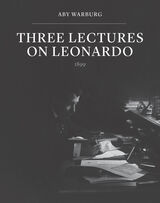
With an average attendance of more than 400, Warburg’s lectures were a great success, and a fourth meeting, accompanied by original Leonardo drawings and photographic prints in the Hamburg Kunsthalle, had to be repeated. Marking the fifth centenary of Leonardo’s death and the 120th anniversary of Warburg’s first public lecture series, this volume contains the full translated text of Warburg’s previously unpublished lectures. This translation, which is based on the texts as they survive in Warburg’s three manuscripts located in the Warburg Institute Archive, will bring these groundbreaking lectures to a new audience.

Maureen Warner-Lewis offers a comprehensive description of the West African language of Yoruba as it has been used on the island of Trinidad in the southern Caribbean. The study breaks new ground in addressing the experience of Africans in one locale of the Africa Diaspora and examines the nature of their social and linguistic heritage as it was successively retained, modified, and discarded in a European-dominated island community.

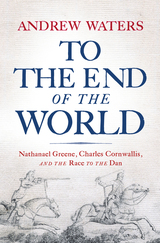
“In the most barren inhospitable unhealthy part of North America, opposed by the most savage, inveterate perfidious cruel Enemy, with zeal and with Bayonets only, it was resolv’d to follow Green’s Army, to the end of the World.” So wrote British general Charles O’Hara about the epic confrontation between Nathanael Greene and Charles Cornwallis during the winter of 1780-81. Only Greene’s starving, threadbare Continentals stood between Cornwallis and control of the South—and a possible end to the American rebellion. Burning their baggage train so that they could travel more quickly, the British doggedly pursued Greene’s bedraggled soldiers, yet the rebels remained elusive. Daniel Morgan’s stunning victory at Cowpens over a superior British force set in motion the “Race to the Dan,” Greene’s month-long strategic retreat across the Carolinas. In constant rain and occasional snow, Greene’s soldiers—tracking the ground with their bloody feet—bound toward a secret stash of boats on the Dan River. Just before Cornwallis could close his trap, the Continentals crossed into Virginia and safety. Greene’s path featured three near-miss river escapes, the little-known Battle of Cowan’s Ford, and a final chase so close that the fate of the American South—and the American effort—rested on one wrong British move.
With a background section on the Southern theater in 1780, and a summary outlining the lives and careers of its important officers, To the End of the World: Nathanael Greene, Charles Cornwallis, and the Race to the Dan is a carefully documented and beautifully written account of this extraordinary chapter of American history. The book not only showcases the incredible dramatics of the American Revolution’s “Great Escape,” but also provides a compelling look at the psychological and intellectual distinctions between its two great generals, Greene and Cornwallis.

Tennessee Williams - American Writers 53 was first published in 1965. Minnesota Archive Editions uses digital technology to make long-unavailable books once again accessible, and are published unaltered from the original University of Minnesota Press editions.
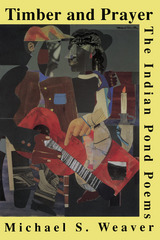
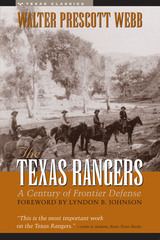
Webb's classic history of the Texas Rangers has been popular ever since its first publication in 1935. This edition is a reproduction of the original Houghton Mifflin edition.
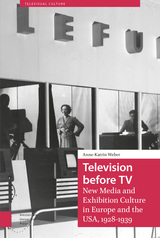
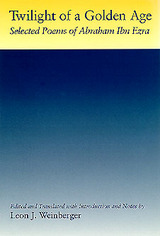

Drawing on interviews with original members of the game theory community and on the Morgenstern diaries, the first section of the book examines early work in game theory. It focuses on the groundbreaking role of the von Neumann-Morgenstern collaborative work, The Theory of Games and Economic Behavior (1944). The second section recounts the reception of this new theory, revealing just how game theory made its way into the literatures of the time and thus became known among relevant communities of scholars. The contributors explore how game theory became a wedge in opening up the social sciences to mathematical tools and use the personal recollections of scholars who taught at Michigan and Princeton in the late 1940s to show why the theory captivated those practitioners now considered to be "giants" in the field. The final section traces the flow of the ideas of game theory into political science, operations research, and experimental economics.
Contributors. Mary Ann Dimand, Robert W. Dimand, Robert J. Leonard, Philip Mirowski, Angela M. O'Rand, Howard Raiffa, Urs Rellstab, Robin E. Rider, William H. Riker, Andrew Schotter, Martin Shubik, Vernon L. Smith
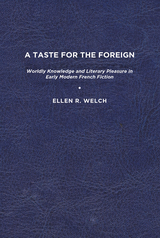
A Taste for the Foreign examines foreignness as a crucial aesthetic category for the development of prose fiction from Jacques Amyot’s 1547 translation of The Ethiopian Story to Antoine Galland’s early eighteenth-century version of The Thousand and One Nights. While fantastic storylines and elements of magic were increasingly shunned by a neo-classicist literary culture that valued verisimilitude above all else, writers and critics surmised that the depiction of exotic lands could offer a superior source for the novelty, variety, and marvelousness that constituted fiction’s appeal. In this sense, early modern fiction presents itself as privileged site for thinking through the literary and cultural stakes of exoticism, or the taste for the foreign. Long before the term exoticism came into common parlance in France, fiction writers thus demonstrated their understanding of the special kinds of aesthetic pleasure produced by evocations of foreignness, developing techniques to simulate those delights through imitations of the exotic. As early modern readers eagerly consumed travel narratives, maps, and international newsletters, novelists discovered ways to blur the distinction between true and imaginary representations of the foreign, tantalizing readers with an illusion of learning about the faraway lands that captured their imaginations.
This book analyzes the creative appropriations of those scientific or documentary forms of writing that claimed to inform the French public about exotic places. Concentrating on the most successful examples of some of the most important sub-genres of prose fiction in the long seventeenth century—heroic romances, shorter urban novels, fictional memoirs, and extraordinary voyages—the book examines how these types of fiction creatively appropriate the scientific or documentary forms of writing that claimed to inform the French public about exotic places.
Published by University of Delaware Press. Distributed worldwide by Rutgers University Press.
In four sections, Thriving as a Mid-Career Librarian collects the experiences of mid-career librarians as they grapple with these questions and the roles that marginalized perspectives, intersectionality, and privilege have played in their careers:
- Section 1: Staying Engaged in Your Career
- Section 2: The Role of Identity in Shaping Mid-career Librarianship
- Section 3: Being Your Own Advocate
- Section 4: To Lead or Not to Lead?
It can feel like everything gets harder, more political, and further under-resourced with each passing year. Thriving as a Mid-Career Librarian offers strategies of community, support, and advocacy that can help make it possible for us to thrive and help others to thrive. At mid-career, we may not have the same bright-eyed enthusiasm we possessed as new information professionals, but we have other things: the contributions we make to our communities and the wealth of experience we have built up since those days.

An in-depth, perceptive account of the unconventional life of the Moomins’ beloved creator, now available in the United States
Tove Jansson achieved fame as the creator of the Moomins, beloved by generations of readers around the world. Remarkably, the Moomins were only part of the prodigious creative output of this Finnish-Swedish writer and artist. Jansson’s work also includes short stories and five novels for adults, as well as paintings, murals, and book illustrations. In this acclaimed biography, Boel Westin relies on numerous conversations with Jansson and unprecedented access to her journals, letters, and personal archives to present an engrossing and comprehensive review of the life and world of Scandinavia’s best-loved author.
As Westin’s meticulous research makes clear, Jansson’s artistic and literary works reflected what was most important to her: the love of family and nature and the desire to pursue her art. Guided by her personal motto, “Love and work,” Jansson seized both with uncompromising joy. And while her romantic relationships with men proved unfulfilling, she found those with women—especially with her longtime partner, the artist Tuulikki Pietilä—both grounding and inspiring.
Westin weaves together the many threads of Jansson’s rich, complex life: an education interrupted to help her family; the bleak war years and her emergence as a painter; the decades of Moominmania across books, newspaper comic strips, merchandise, and adaptations; her later fictions, including her popular The Summer Book; and her time with Pietilä on the solitary island of Klovharu. Tove Jansson: Life, Art, Words offers fans and admirers around the world the most complete portrait of the writer Philip Pullman described as “a genius, a woman of profound wisdom and great artistry.”
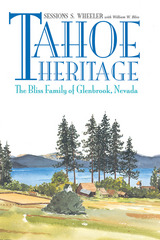
Tahoe Heritage is a lively chronicle of four generations of the pioneering Bliss family, beginning with Duane L. Bliss, a visionary who built an impressive lumbering business and later the renowned Glenbrook Inn. The inn was completed in 1907 and quickly became a destination for the elite of San Francisco. The hotel register contains the names of national figures who loved and frequented Glenbrook: Ulysses Grant, Joaquin Miller, Thomas Edison, Henry Ford, Clark Gable, and Rita Hayworth, to name a few. The Bliss family closed the inn in 1976. Anyone who has visited the Tahoe area, now a very different place from the idyllic days of Bliss family management, will enjoy this account of its growth and the remarkable family which brought it about.

The logic of research in public administration, argues Jay D. White, may be more like that of storytelling than of conventional social science research. In Taking Language Seriously, he examines the linguistic, discursive, and narrative foundations of public administration research and develops a narrative theory of knowledge development and use for the field.
White builds his case for this narrative theory by showing how research on complex problems is grounded in language and discourse. He then explains how a variety of recent developments in philosophy and the humanities—positivism, postpositivism, hermeneutics, critical and legal theory, postmodernism, and poststructuralism—can contribute to our understanding of public administration research.
Focusing on the logical structures of three modes of research—explanatory, interpretive, and critical—White shows how each is equally legitimate, depending on the nature of the research questions.
This comprehensive yet clear discussion of the philosophical foundations of research in public administration advances an alternative theory of knowledge development that will be valuable for everyone in fields seeking to affect social, political, economic, and organizational change.
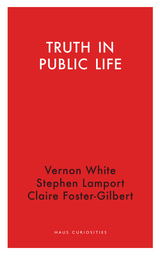
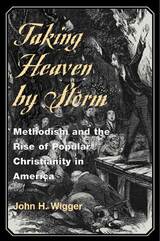
Taking Heaven by Storm shows how Methodism fed into popular religious enthusiasm as well as the social and economic ambitions of the "middling people on the make"--skilled artisans, shopkeepers, small planters, petty merchants--who constituted its core. Wigger describes how the movement expanded its reach and fostered communal intimacy and "intemperate zeal" by means of an efficient system of itinerant and local preachers, class meetings, love feasts, quarterly meetings, and camp meetings. He also examines the important role of African Americans and women in early American Methodism and explains how the movement's willingness to accept impressions, dreams, and visions as evidence of the work and call of God circumvented conventional assumptions about education, social standing, gender, and race.
A pivotal text on the role of religion in American life, Taking Heaven by Storm shows how the enthusiastic, egalitarian, entrepreneurial, lay-oriented spirit of early American Methodism continues to shape popular religion today.


These We Teach was first published in 1943. Minnesota Archive Editions uses digital technology to make long-unavailable books once again accessible, and are published unaltered from the original University of Minnesota Press editions.

Williams visits countless tequila producers, distributors, and connoisseurs to tell the story of how tequila started in the agave lands of Mexico, became an icon of youthful inebriation, and developed, today, into a truly artisanal product drawing the most discerning drinkers. Peppered throughout are illustrations that capture tequila’s Mexican heritage and commercial image. Including recipes for tequila-based cocktails, as well as advice on the buying, storing, tasting, and serving of tequila, this history will delight any beverage aficionado or anyone interested in the history of Mexico and its culinary riches.

This exciting medical detective story of the search for the cause of beriberi—an account of the 26 years of research for a method of isolating the vitamin, the determination of its molecular structure, and the development of methods for its synthesis—is a remarkable first-person account of an important chapter of medical history. The book summarizes all that has been learned about beriberi since the beginning of medicine. It chronicles the unceasing efforts of the author to eradicate the scourge of beriberi among the rice-eating peoples of the world.
Beriberi is of evident interest to specialists in the fields of nutrition and public health; it appeals also to those confronted with practical problems in applied medicine or science; and it is a compelling story of an exciting and admirable human adventure for the general reader. The author has directed his book especially to students in Asia who are becoming increasingly responsible for the welfare of their countries.
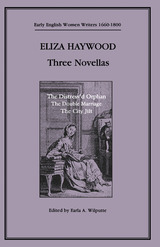
The three novellas presented here—The Ditress'd Orphan, The City Jilt, and The Double Marriage—were published separately in 1726, but were originally intended for a single volume. Haywood was a dangerous entity in the eighteenth century: a writing woman, writing for women. Like many female authors before her, Haywood was labeled and condemned by men as unfeminine, licentious, immodest and usurping. She dared to wield that masculine instrument, the pen, and speak her mind in public like a man.

The authors of this volume emphasize that assessment, as it exists in schools today, consists mainly of the measurements that teachers themselves design, evaluate, and act upon every day. Improving the usefulness of assessment in schools primarily requires assisting and harnessing this flood of assessment information, both as a means of learning within the classroom and as the source of crucial information flowing out of classrooms.
This volume aims to encourage debate and reflection among educational researchers, professionals, and policymakers. Five source chapters describe successful classroom assessment models developed in partnership with teachers, while additional commentaries give a range of perspectives on the issues of classroom assessment, standardized testing, and accountability.
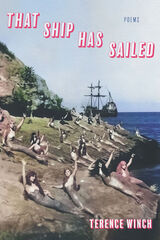

Jeffrey is the mischievous "something" that has headquarters in the Windham home in Selma, Alabama. He first made his presence known in October 1966, and since then he has continued, at irregular and infrequent intervals, to clump down the hall, slam doors, rock in a chair, frighten the family cat (now deceased, through no fault of Jeffrey), move heavy pieces of furniture, cause electronic equipment to malfunction, and hide objects. He frequently accompanies Mrs. Windham on her travels, and tales of Jeffrey's antics are widely recounted.

This is an auto-narrated audiobook edition of this book.
The highly engaging introduction to thinking like an economist, updated for a new generation of readers.
When economists wrestle with any social issue—be it unemployment, inflation, healthcare, or crime and punishment—they do so impersonally. The big question for them is: what are the costs and benefits, or trade-offs, of the solutions to such matters? These trade-offs constitute the core of how economists see the world—and make the policies that govern it.
Trade-Offs is an introduction to the economic approach of analyzing controversial policy issues. A useful introduction to the various factors that inform public opinion and policymaking, Trade-Offs is composed of case studies on topics drawn from across contemporary law and society.
Intellectually stimulating yet accessible and entertaining, Trade-Offs will be appreciated by students of economics, public policy, health administration, political science, and law, as well as by anyone following current social policy debates.

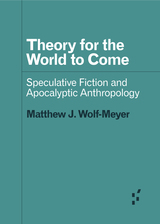
Can social theories forge new paths into an uncertain future?
The future has become increasingly difficult to imagine. We might be able to predict a few events, but imagining how looming disasters will coincide is simultaneously necessary and impossible. Drawing on speculative fiction and social theory, Theory for the World to Come is the beginning of a conversation about theories that move beyond nihilistic conceptions of the capitalism-caused Anthropocene and toward generative bodies of thought that provoke creative ways of thinking about the world ahead. Matthew J. Wolf-Meyer draws on such authors as Kim Stanley Robinson and Octavia Butler, and engages with afrofuturism, indigenous speculative fiction, and films from the 1970s and ’80s to help think differently about the future and its possibilities.
Forerunners: Ideas First
Short books of thought-in-process scholarship, where intense analysis, questioning, and speculation take the lead
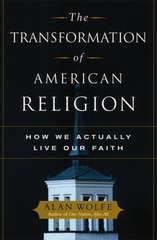
The Transformation of American Religion represents the first systematic effort in more than fifty years to bring together a wide body of literature about worship, fellowship, doctrine, tradition, identity, and sin to examine how Americans actually live their faith. Emphasizing personal stories, Wolfe takes readers to religious services across the nation-an Episcopal congregation in Massachusetts, a Catholic Mass in a suburb of Detroit, an Orthodox Jewish temple in Boston-to show that the stereotype of religion as a fire-and-brimstone affair is obsolete. Gone is the language of sin and damnation, and forgotten are the clear delineations between denominations; they have been replaced with a friendly God and a trend towards sampling new creeds and doctrines. Overall, Wolfe reveals American religion as less radical, less contentious, and less dangerous than it is generally perceived to be.

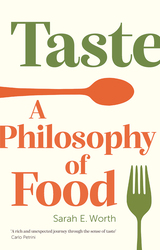
When we eat, we eat the world: taking something from outside and making it part of us. But what does it taste of? And can we develop our taste? In Taste, Sarah Worth argues that taste is a sense that needs educating, for the real pleasures of eating only come with an understanding of what one really likes. From taste as an abstract concept to real examples of food, she explores how we can learn about and develop our sense of taste through themes ranging from pleasure, authenticity, and food fraud, to visual images, recipes, and food writing.
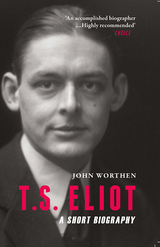
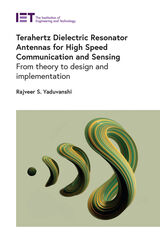
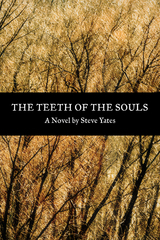
The story begins just after the Civil War when Leighton Shea Morkan, son of Irish immigrants, marries Patricia Grünhaagen Weitzer, daughter of a German banking family. Yet he can’t let go of his childhood love and wartime confidante, the house hand and former slave, Judith. Both unions produce children, one a shrouded secret, and one the heir to the Morkan legacy: the limestone quarries of Springfield, Missouri, and the bloody past, what Judith calls “The Teeth of the Souls.”
Grounded in broad historical research and spanning Missouri’s reconstruction, vigilantism, and fall from grace, The Teeth of the Souls chronicles the violent melding of immigrant strains—Irish, German, Scots-Irish, and African American—into the fabric of the Ozarks.
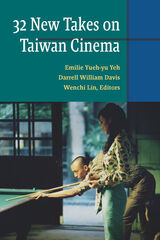
Film-by-film is conceived as the main carrier of moving picture imagery for a majority of viewers, across the world. The curation offers an array of formal, historical, genre, sexual, social, and political frames, which provide a rich brew of contexts. This surfeit of meanings is carried by individual films, one by one, which breaks down abstractions into narrative bites and outsized emotions.
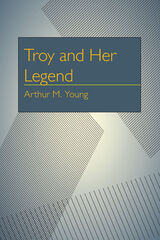
Young provides here a “biography” of the greatest of the classical legends, the story of the fall of Troy. As he states in his book, the greatness of the legend does not depend on its relation to historical reality, but “lies rather in the beauty and variety it has called out of the creative imaginations of artists, from Homer down to modern times, artists who with varied skill and in many forms have expressed their individual genius.” Young's text is beautifully illustrated with examples of art inspired by the legend, from literature, painting, ceramics, tapestry, sculpture, and the opera, with fresh interpretations of their meaning. The legend of Troy has survived more than 3,000 years in the art of many-from Quintus of Smyrna to Tennyson to Christopher Morley, Guérin to Baroccio to Strauss-and archaeological excavations in our own time have only enriched the imaginations of contemporary artists and scholars.
In deepening our knowledge of classic texts and their changing interpretations over time, Young argues, we enhance our understanding both of the classics and of the successive civilizations they have influenced.
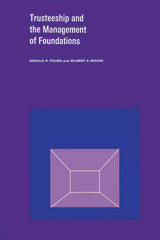


The thirteen essays in this volume underscore the unity and diversity of music research today. Ranging in topic from Gregorian chant to Russian lament, Chinese opera to American spirituals, the essays span the early ninth to the late twentieth centuries and move geographically from East Asia to Europe, North America, and the Pacific. The essays focus on some of the central issues in current musicological and ethnomusicological research: the change and continuity in musical traditions, tune identity and metamorphosis, and the nature and function of musical notation.
Owing to the musical material, the diverse cultural contexts, and the different approaches and methodologies employed, the same theoretical issues are formulated and addressed in various ways. It is through variations that themes grow in significance and beauty. The unity in and coherence of modern musicological discourse, though still elusive, are within reach in this volume.


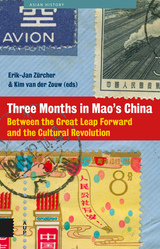
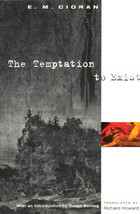
"A sort of final philosopher of the Western world. His statements have the compression of poetry and the audacity of cosmic clowning."—Washington Post
"An intellectual bombshell that blasts away at all kinds of cant, sham and conventionality. . . . [Cioran's] language is so erotic, his handling of words so seductive, that the act of reading becomes an encounter in the erogenous zone."—Jonah Raskin, L.A. Weekly
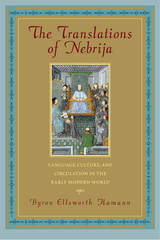
Tracing the global influence of Nebrija's dictionary, Byron Ellsworth Hamann, in this interdisciplinary, deeply researched book, connects pagan Rome, Muslim Spain, Aztec Tenochtitlan, Elizabethan England, the Spanish Philippines, and beyond, revealing new connections in world history. The Translations of Nebrija re-creates the travels of people, books, and ideas throughout the early modern world and reveals the adaptability of Nebrija's text, tracing the ways heirs and pirate printers altered the dictionary in the decades after its first publication. It reveals how entries in various editions were expanded to accommodate new concepts, such as for indigenous languages in the Americas—a process with profound implications for understanding pre-Hispanic art, architecture, and writing. It shows how words written in the margins of surviving dictionaries from the Americas shed light on the writing and researching of dictionaries across the early modern world.
Exploring words and the dictionaries that made sense of them, this book charts new global connections and challenges many assumptions about the early modern world.
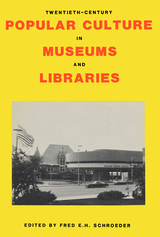
The essays in this book investigate the reasons for present-day neglect of popular culture materials and chart the various routes by which conscientious and insightful librarians and museum directors can correct this disastrous oversight.

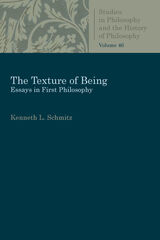

This collection of Michael Dummett’s philosophical essays, spanning more than twenty years, ranges in topic from time to the philosophy of mathematics, but is unified by a steady philosophical outlook. The essays are, in one way or another, informed by Dummett’s concern with metaphysical questions and his belief that the correct approach to them is via the theory of meaning. Reflected here is Dummett’s conviction that the concept of truth is of central importance both for the theory of meaning and for metaphysics. As he sees it, an adequate elucidation of the concept of truth requires nothing less than the construction of a satisfactory theory of meaning. At the same time, resolution of the traditional problems of metaphysics turns critically upon the way in which the concept of truth applies to each of various large ranges of statements, and especially upon whether the statements in each such range satisfy the principle that every statement must be true or false.
The book includes all Dummett’s philosophical essays that were published or given as public lectures before August 1976, with the exception of a few he did not think it worthwhile to reprint and of the two entitled “What Is a Theory of Meaning?” One essay appears here for the first time in English and two have not been previously published. In an extensive preface, Dummett comments on the essays and seeks to relate them to the philosophical background against which they were written.
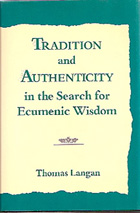
Our emerging world system is bringing the great traditions and cultures it has spawned into ever more intimate and dangerous contact. Langan argues that we must struggle toward a unity of discourse respectful of genuine experiences of varying civilizations if we are to live peacefully on one planet.

Here are the most recent writings, some of them unpublished, of the preeminent philosopher of our time. Philosophical reflections on language are brought to bear upon metaphysical and epistemological questions such as these: What does it mean to assume objects, concrete and abstract? How do such assumptions serve science? What is the empirical content of a scientific theory? Further essays deal with meaning, moral values, analytical philosophy and its history, metaphor, the nature of mathematics; several are concerned with logic; and there are essays on individual philosophers. The volume concludes with some general reflections on the contemporary scene and two playful pieces on the Times Atlas and H. L. Mencken.
W. V. Quine is always, whatever his subject, an elegant writer, witty, precise, and forceful. Admirers of his earlier books will welcome this new volume.
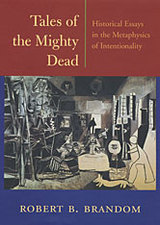
A work in the history of systematic philosophy that is itself animated by a systematic philosophic aspiration, this book by one of the most prominent American philosophers working today provides an entirely new way of looking at the development of Western philosophy from Descartes to the present.
Brandom begins by setting out a historical context and outlining a methodological rationale for his enterprise. Then, in chapters on Spinoza, Leibniz, Hegel, Frege, Heidegger, and Sellars, he pursues the most fundamental philosophical issues concerning intentionality, and therefore mindedness itself, revealing an otherwise invisible set of overlapping themes and explanatory strategies. Variously functionalist, inferentialist, holist, normative, and social pragmatist in character, the explanations of intentionality offered by these philosophers, taken together, form a distinctive tradition. The fresh perspective afforded by this tradition enriches our understanding of the philosophical topics being addressed, provides a new conceptual vantage point for viewing our philosophical ancestors, and highlights central features of the sort of rationality that consists in discerning a philosophical tradition--and it does so by elaborating a novel, concrete instance of just such an enterprise.

The relationships between philosophy and aesthetics and between philosophy and politics are especially pressing issues today. Those who explore these themes will applaud the publication—for the first time in English—of this important collection, one that reveals the scope and force of Philippe Lacoue-Labarthe’s reflections on mimesis, subjectivity, and representation in philosophical thought.
This coherent and rigorous body of work reflects the author’s complex and subtle treatment of mimesis in the history of philosophy from Plato to Heidegger. It contains close critical analyses of works by Plato, Diderot, Hölderlin, Reik, Girard, and Heidegger, and moves through topics such as music, autobiography, tragedy, and the problem of historical and political self-definition.
Because Lacoue-Labarthe deals with issues that cross disciplinary lines, his work will appeal to readers interested in philosophy as it relates to politics, history, and aesthetics, especially literature. By showing that the concept of mimesis is an integral part of philosophical reasoning, he provides a challenging approach to many of Heidegger’s ideas, and contributes to the poststructuralist (or postmodem) attempt to rethink the notions of reference and representation. This approach challenges readers to redefine their understanding of history and politics.
One of the most gifted and active of the younger French philosophers, Lacoue-Labarthe is a respected peer of Jacques Derrida, who has provided an extensive introduction to the book especially for American readers. Those who are familiar with Derrida’s writings will appreciate the opportunity to see his questions approached in an entirely different style by Lacoue-Labarthe, resulting in productive new insights.
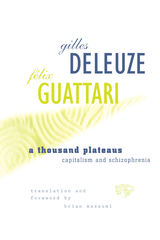
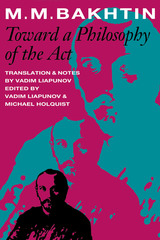
Rescued in 1972 from a storeroom in which rats and seeping water had severely damaged the fifty-year-old manuscript, this text is the earliest major work (1919-1921) of the great Russian philosopher M. M. Bakhtin. Toward a Philosophy of the Act contains the first occurrences of themes that occupied Bakhtin throughout his long career. The topics of authoring, responsibility, self and other, the moral significance of "outsideness," participatory thinking, the implications for the individual subject of having "no-alibi in existence," the difference between the world as experienced in actions and the world as represented in discourse—all are broached here in the heat of discovery. This is the "heart of the heart" of Bakhtin, the center of the dialogue between being and language, the world and mind, "the given" and "the created" that forms the core of Bakhtin's distinctive dialogism.
A special feature of this work is Bakhtin's struggle with the philosophy of Immanuel Kant. Put very simply, this text is an attempt to go beyond Kant's formulation of the ethical imperative. mci will be important for scholars across the humanities as they grapple with the increasingly vexed relationship between aesthetics and ethics.
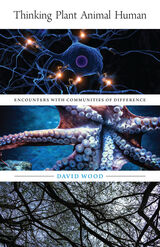
Collected essays by a leading philosopher situating the question of the animal in the broader context of a relational ontology
There is a revolution under way in our thinking about animals and, indeed, life in general, particularly in the West. The very words man, animal, and life have turned into flimsy conceptual husks—impediments to thinking about the issues in which they are embroiled. David Wood was a founding member of the early 1970s Oxford Group of philosophers promoting animal rights; he also directed Ecology Action (UK). Thinking Plant Animal Human is the first collection of this major philosopher’s influential essays on “animals,” bringing together his many discussions of nonhuman life, including the classic “Thinking with Cats.”
Exploring our connections with cats, goats, and sand crabs, Thinking Plant Animal Human introduces the idea of “kinnibalism” (the eating of mammals is eating our own kin), reflects on the idea of homo sapiens, and explores the place of animals both in art and in children’s stories. Finally, and with a special focus on trees, the book delves into remarkable contemporary efforts to rescue plants from philosophical neglect and to rethink and reevaluate their status. Repeatedly bubbling to the surface is the remarkable strangeness of other forms of life, a strangeness that extends to the human.
Wood shows that the best way of resisting simplistic classification is to attend to our manifold relationships with other living beings. It is not anthropocentric to focus on such relationships; they cast light in complex ways on the living communities of which we are part, and exploring them recoils profoundly on our understanding of ourselves.
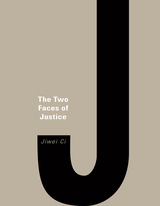
Justice is a human virtue that is at once unconditional and conditional. Under favorable circumstances, we can be motivated to act justly by the belief that we must live up to what justice requires, irrespective of whether we benefit from doing so. But our will to act justly is subject to conditions. We find it difficult to exercise the virtue of justice when others regularly fail to. Even if we appear to have overcome the difficulty, our reluctance often betrays itself in certain moral emotions.
In this book, Jiwei Ci explores the dual nature of justice, in an attempt to make unitary sense of key features of justice reflected in its close relation to resentment, punishment, and forgiveness. Rather than pursue a search for normative principles, he probes the human psychology of justice to understand what motivates moral agents who seek to behave justly, and why their desire to be just is as precarious as it is uplifting.
A wide-ranging treatment of enduring questions, The Two Faces of Justice can also be read as a remarkably discerning contribution to the Western discourse on justice relaunched in our time by John Rawls.
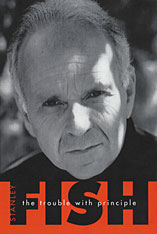
Stanley Fish is an equal opportunity antagonist. A theorist who has taken on theorists, an academician who has riled the academy, a legal scholar and political pundit who has ruffled feathers left and right, Fish here turns with customary gusto to the trouble with principle. Specifically, Fish has a quarrel with neutral principles. The trouble? They operate by sacrificing everything people care about to their own purity. And they are deployed with equal highmindedness and equally absurd results by liberals and conservatives alike.
In this bracing book, Fish argues that there is no realm of higher order impartiality--no neutral or fair territory on which to stake a claim--and that those who invoke one are always making a rhetorical and political gesture. In the end, it is history and context, the very substance against which a purportedly abstract principle defines itself, that determines a principle's content and power. In the course of making this argument, Fish takes up questions about academic freedom and hate speech, affirmative action and multiculturalism, the boundaries between church and state, and much more. Sparing no one, he shows how our notions of intellectual and religious liberty--cherished by those at both ends of the political spectrum--are artifacts of the very partisan politics they supposedly transcend. The Trouble with Principle offers a provocative challenge to the debates of our day that no intellectually honest citizen can afford to ignore.
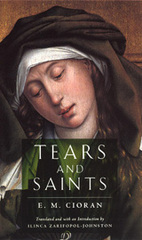
"Who can tell?" he wrote in the first paragraph of this book, first published in Romania in 1937. "To be sure, tears are their trace. Tears did not enter the world through the saints; but without them we would never have known that we cry because we long for a lost paradise." By following in their traces, "wetting the soles of one's feet in their tears," Cioran hoped to understand how a human being can renounce being human. Written in Cioran's characteristic aphoristic style, this flamboyant, bold, and provocative book is one of his most important—and revelatory—works.
Cioran focuses not on martyrs or heroes but on the mystics—primarily female—famous for their keening spirituality and intimate knowledge of God. Their Christianity was anti-theological, anti-institutional, and based solely on intuition and sentiment. Many, such as Catherine of Siena, Teresa of Avila, and Saint John of the Cross, have produced classic works of mystical literature; but Cioran celebrates many more minor and unusual figures as well.
Following Nietzsche, he focuses explicitly on the political element hidden in saints' lives. In his hands, however, their charitable deeds are much less interesting than their thirst for pain and their equally powerful capacity to endure it. Behind their suffering and their uncanny ability to renounce everything through ascetic practices, Cioran detects a fanatical will to power.
"Like Nietzsche, Cioran is an important religious thinker. His book intertwines God and music with passion and tears. . . . [Tears and Saints] has a chillingly contemporary ring that makes this translation important here and now."—Booklist
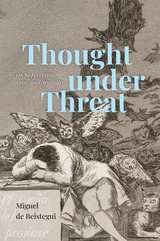
Thought under Threat is an attempt to understand the tendencies that threaten thinking from within. These tendencies have always existed. But today they are on the rise and frequently encouraged, even in our democracies. People “disagree” with science and distrust experts. Political leaders appeal to the hearts and guts of “the people,” rather than their critical faculties. Stupidity has become a right, if not a badge of honor; superstition is on the rise; and spite is a major political force. Thinking is considered “elitist.”
To see those obstacles as vices of thought, Miguel de Beistegui argues, we need to understand stupidity not as a lack of intelligence or judgment, but as the tendency to raise false problems and trivial questions. Similarly, we need to see spite not as a moral vice, but as a poison that blurs and distorts our critical faculties. Finally, superstition is best described not as a set of false beliefs, but as a system that neutralizes one’s ability to think for oneself.
For de Beistegui, thinking is intrinsically democratic and a necessary condition for the exercise of freedom. Thought under Threat shows how a training of thought itself can be used to ward off those vices, lead to productive deliberation, and, ultimately, create a thinking community.
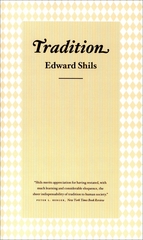
"Shils is a man of fabled learning, whose mind purrs powerfully like the moth at dusk. I hesitate to use the word conservative of him because it misses the central concern of his work, which is not conservatism, but the conservation of those human resources and achievements which are richest, and matter most."—David A. Martin, Times Literary Supplement
"Tradition is the first comprehensive treatment of the subject that encompasses the totality of tradition in all its multifaceted variables and functions. . . . It is a landmark analytical and theoretical sociological study that not only fills a need but also provides a basic model and impetus for further research."—H. Leon Abrams Jr., Sociology
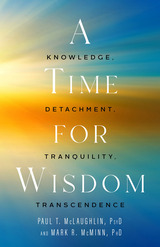
These are volatile times. Fear, suspicion, and cynicism are chronic. A mere tweet inflames the passions of millions while click-bait “hot takes” stoke the amygdalas of everyone with an Internet connection. We treat those not in our tribe as a threat and deem anyone with a different opinion as evil. Mistaking myopia for measure, we lack all sense of proportion in our judgments. We are shortsighted, mired in the present, ignorant of history, and blind to the future. We thought that technology would save us by connecting us to each other and the world’s information. Instead, it enticed our vices, encouraged our biases, and eroded the one virtue we need now more than ever: wisdom.
A Time for Wisdom is for readers who feel beleaguered by the incivility of the modern world, dispirited by its coarse rhetoric and toxic partisanship. It is an invitation to escape the shallow cacophony and restore peace and perspective to our daily lives. Written by two psychologists, the book takes the best scientific research on wisdom and integrates it with timeless concepts that have, for ages, guided troubled souls through life’s hardships. From this foundation, the authors present four steps we can follow to practice wisdom in the 21st Century:
- Receiving knowledge.
- Practicing detachment.
- Experiencing tranquility.
- Cultivating transcendence.
These are profound and spiritual principles that can bring us immense satisfaction when we aspire to live by them.
In A Time for Wisdom, the authors show us how. They commend a course of action towards the Good, the True, and the Beautiful, towards calm and clear moral reasoning. They lead us out of the circus of contemporary life and show us a path beyond our petty self-centeredness. By journeying along that path, we can, like the great sages and scientists before us, rise above the immediacy of the moment and partake of the numinous and the infinite.
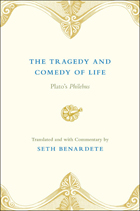
In The Tragedy and Comedy of Life, Seth Benardete focuses on the idea of the good in what is widely regarded as one of Plato's most challenging and complex dialogues, the Philebus. Traditionally the Philebus is interpreted as affirming the doctrine that the good resides in thought and mind rather than in pleasure or the body. Benardete challenges this view, arguing that Socrates vindicates the life of the mind over the life of pleasure not by separating the two and advocating a strict asceticism, but by mixing pleasure and pain with mind in such a way that the philosophic life emerges as the only possible human life.
Benardete combines a probing and challenging commentary that subtly mirrors and illuminates the complexities of this dialogue with the finest English translation of the Philebus yet available. The result is a work that will be of great value to classicists, philosophers, and political theorists alike.
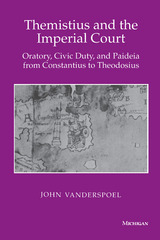
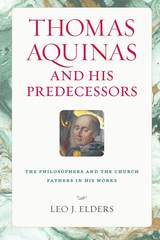
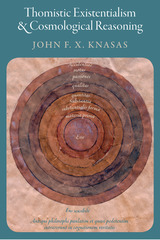
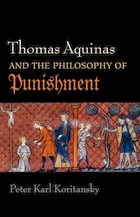
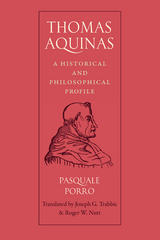
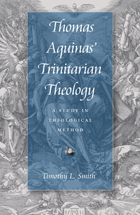
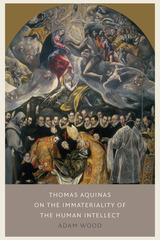
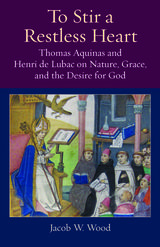
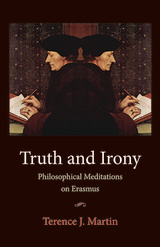
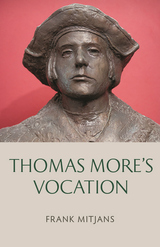
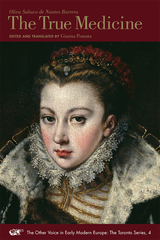
This annotated translation allows the reader to locate the Dialogue on the True Medicine in the context of early modern medical and philosophical culture, identifying Sabuco’s ancient and modern sources. The editor’s introduction reviews the contested issue of authorship, offers new documentation for the history of the reception of Sabuco’s ideas in the seventeenth century, and relates Sabuco’s work to the Querelle des femmes, the protofeminist debate which had remarkable echoes in early modern medicine.
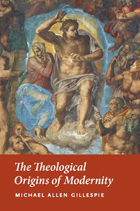
Exposing the religious roots of our ostensibly godless age, Michael Allen Gillespie reveals in this landmark study that modernity is much less secular than conventional wisdom suggests. Taking as his starting point the collapse of the medieval world, Gillespie argues that from the very beginning moderns sought not to eliminate religion but to support a new view of religion and its place in human life. He goes on to explore the ideas of such figures as William of Ockham, Petrarch, Erasmus, Luther, Descartes, and Hobbes, showing that modernity is best understood as a series of attempts to formulate a new and coherent metaphysics or theology.
“Bringing the history of political thought up to date and situating it against the backdrop of contemporary events, Gillespie’s analyses provide us a way to begin to have conversations with the Islamic world about what is perhaps the central question within each of the three monotheistic religions: if God is omnipotent, then what is the place of human freedom?”—Joshua Mitchell, Georgetown University
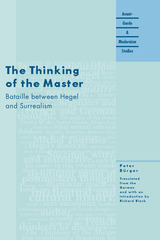
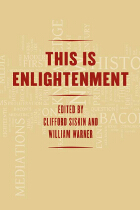
Debates about the nature of the Enlightenment date to the eighteenth century, when Imanual Kant himself addressed the question, “What is Enlightenment?” The contributors to this ambitious book offer a paradigm-shifting answer to that now-famous query: Enlightenment is an event in the history of mediation. Enlightenment, they argue, needs to be engaged within the newly broad sense of mediation introduced here—not only oral, visual, written, and printed media, but everything that intervenes, enables, supplements, or is simply in between.
With essays addressing infrastructure and genres, associational practices and protocols, this volume establishes mediation as the condition of possibility for enlightenment. In so doing, it not only answers Kant’s query; it also poses its own broader question: how would foregrounding mediation change the kinds and areas of inquiry in our own epoch? This Is Enlightenment is a landmark volumewith the polemical force and archival depth to start a conversation that extends across the disciplines that the Enlightenment itself first configured.
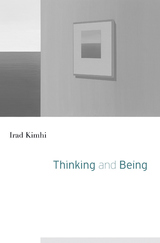
Opposing a long-standing orthodoxy of the Western philosophical tradition running from ancient Greek thought until the late nineteenth century, Frege argued that psychological laws of thought—those that explicate how we in fact think—must be distinguished from logical laws of thought—those that formulate and impose rational requirements on thinking. Logic does not describe how we actually think, but only how we should. Yet by thus sundering the logical from the psychological, Frege was unable to explain certain fundamental logical truths, most notably the psychological version of the law of non-contradiction—that one cannot think a thought and its negation simultaneously.
Irad Kimhi’s Thinking and Being marks a radical break with Frege’s legacy in analytic philosophy, exposing the flaws of his approach and outlining a novel conception of judgment as a two-way capacity. In closing the gap that Frege opened, Kimhi shows that the two principles of non-contradiction—the ontological principle and the psychological principle—are in fact aspects of the very same capacity, differently manifested in thinking and being.
As his argument progresses, Kimhi draws on the insights of historical figures such as Aristotle, Kant, and Wittgenstein to develop highly original accounts of topics that are of central importance to logic and philosophy more generally. Self-consciousness, language, and logic are revealed to be but different sides of the same reality. Ultimately, Kimhi’s work elucidates the essential sameness of thinking and being that has exercised Western philosophy since its inception.
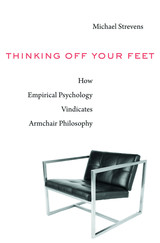
Many philosophers believe they can gain knowledge about the world from the comfort of their armchairs, simply by reflecting on the nature of things. But how can the mind arrive at substantive knowledge of the world without seeking its input? Michael Strevens proposes an original defense of the armchair pursuit of philosophical knowledge, focusing on “the method of cases,” in which judgments about category membership—Does this count as causation? Does that count as the right action to take?—are used to test philosophical hypotheses about such matters as causality, moral responsibility, and beauty.
Strevens argues that the method of cases is capable of producing reliable, substantial knowledge. His strategy is to compare concepts of philosophical things to concepts of natural kinds, such as water. Philosophical concepts, like natural kind concepts, do not contain the answers to philosophers’ questions; armchair philosophy therefore cannot be conceptual analysis. But just as natural kind concepts provide a viable starting point for exploring the nature of the material world, so philosophical concepts are capable of launching and sustaining fruitful inquiry into philosophical matters, using the method of cases. Agonizing about unusual “edge cases,” Strevens shows, can play a leading role in such discoveries.
Thinking Off Your Feet seeks to reshape current debates about the nature of philosophical thinking and the methodological implications of experimental philosophy, to make significant contributions to the cognitive science of concepts, and to restore philosophy to its traditional position as an essential part of the human quest for knowledge.
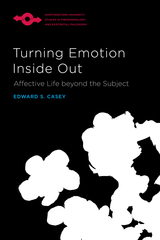
This book begins with a brief critique of internalist views of emotion that hold that feelings are sequestered within a subject. Casey affirms that while certain emotions are felt as resonating within our subjectivity, many others are experienced as occurring outside any such subjectivity. These include intentional or expressive feelings that transpire between ourselves and others, such as an angry exchange between two people, as well as emotions or affects that come to us from beyond ourselves. Casey claims that such far‑out emotions must be recognized in a full picture of affective life. In this way, the book proposes to “turn emotion inside out.”
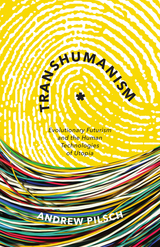
Transhumanism posits that humanity is on the verge of rapid evolutionary change as a result of emerging technologies and increased global consciousness. However, this insight is dismissed as a naive and controversial reframing of posthumanist thought, having also been vilified as “the most dangerous idea in the world” by Francis Fukuyama. In this book, Andrew Pilsch counters these critiques, arguing instead that transhumanism’s utopian rhetoric actively imagines radical new futures for the species and its habitat.
Pilsch situates contemporary transhumanism within the longer history of a rhetorical mode he calls “evolutionary futurism” that unifies diverse texts, philosophies, and theories of science and technology that anticipate a radical explosion in humanity’s cognitive, physical, and cultural potentialities. By conceptualizing transhumanism as a rhetoric, as opposed to an obscure group of fringe figures, he explores the intersection of three major paradigms shaping contemporary Western intellectual life: cybernetics, evolutionary biology, and spiritualism. In analyzing this collision, his work traces the belief in a digital, evolutionary, and collective future through a broad range of texts written by theologians and mystics, biologists and computer scientists, political philosophers and economic thinkers, conceptual artists and Golden Age science fiction writers. Unearthing the long history of evolutionary futurism, Pilsch concludes, allows us to more clearly see the novel contributions that transhumanism offers for escaping our current geopolitical bind by inspiring radical utopian thought.
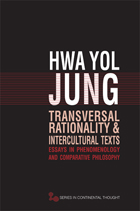
Transversality is the keyword that permeates the spirit of these thirteen essays spanning almost half a century, from 1965 to 2009. The essays are exploratory and experimental in nature and are meant to be a transversal linkage between phenomenology and East Asian philosophy.
Transversality is the concept that dispels all ethnocentrisms, including Eurocentrism. In the globalizing world of multiculturalism, Eurocentric universalism falls far short of being universal but simply parochial at the expense of the non-Western world. Transversality is intercultural, interspecific, interdisciplinary, and intersensorial. Transversal Rationality and Intercultural Texts means to transform the very way of philosophizing itself by infusing or hybridizing multiple traditions in the history of the world.
Like no other scholar, Jung bridges the gap between Asian and Western cultures. By engaging Western philosophers as diverse as Bacon, Descartes, Heidegger, Hegel, Merleau-Ponty, Derrida, Glissant, Barthes, Fenollosa, McLuhan, and Eastern philosophers such as Wang Yang-ming, Nishida Kitaro, Nishitani Keiji, Watsuji Tetsuro, Nhat Hanh, and Suzuki Daisetz Teitaro, this book marks an unparalleled contribution to comparative philosophy and the study of philosophy itself.
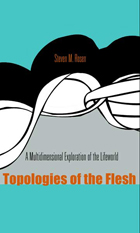
The concept of “flesh” in philosophical terms derives from the writings of Maurice Merleau-Ponty. This was the word he used to name the concrete realm of sentient bodies and life processes that has been eclipsed by the abstractions of science, technology, and modern culture. Topology, to conventional understanding, is the branch of mathematics that concerns itself with the properties of geometric figures that stay the same when the figures are stretched or deformed.
Topologies of the Flesh is an original blend of continental thought and mathematical imagination. Steven M. Rosen opens up a new area of philosophical inquiry: topological phenomenology. Through his unique application of qualitative mathematics, he extends the approaches of Merleau-Ponty and Heidegger so as to offer a detailed exploration of previously uncharted dimensions of human experience and the natural world.
Rosen’s unprecedented marriage of topology and phenomenology is motivated by the desire to help overcome the pervasive dualism of contemporary philosophy and Western culture at large. To carry this to completion, he must address his own dualistic stance as author. Challenging the author’s traditional posture of detachment and anonymity, Rosen makes his presence vividly felt in his final chapter, and his philosophical analysis is transformed into a living reality.
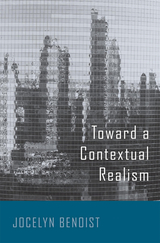
An award-winning philosopher bridges the continental-analytic divide with an important contribution to the debate on the meaning of realism.
Jocelyn Benoist argues for a philosophical point of view that prioritizes the concept of reality. The human mind’s attitudes toward reality, he posits, both depend on reality and must navigate within it.
Refusing the path of metaphysical realism, which would make reality an object of speculation in itself, independent of any reflection on our ways of approaching it or thinking about it, Benoist defends the idea of an intentionality placed in reality—contextualized. Intentionality is an essential part of any realist philosophical position; Benoist’s innovation is to insist on looking to context to develop a renewed realism that draws conclusions from contemporary philosophy of language and applies them methodically to issues in the fields of metaphysics and the philosophy of the mind. “What there is”—the traditional subject of metaphysics—can be determined only in context.
Benoist offers a sharp criticism of acontextual ontology and acontextual approaches to the mind and reality. At the same time, he opposes postmodern anti-realism and the semantic approach characteristic of classic analytic philosophy. Instead, Toward a Contextual Realism bridges the analytic-continental divide while providing the foundation for a radically contextualist philosophy of mind and metaphysics. “To be” is to be in a context.
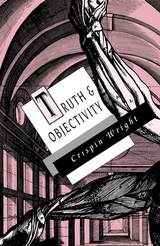
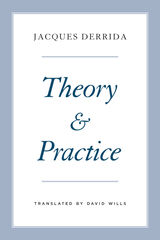
Theory and Practice is a series of nine lectures that Jacques Derrida delivered at the École Normale Supérieure in 1976 and 1977. The topic of “theory and practice” was associated above all with Marxist discourse and particularly the influential interpretation of Marx by Louis Althusser. Derrida’s many questions to Althusser and other thinkers aim at unsettling the distinction between thinking and acting.
Derrida’s investigations set out from Marx’s “Theses on Feuerbach,” in particular the eleventh thesis, which has often been taken as a mantra for the “end of philosophy,” to be brought about by Marxist practice. Derrida argues, however, that Althusser has no such end in view and that his discourse remains resolutely philosophical, even as it promotes the theory/practice pair as primary values. This seminar also draws fascinating connections between Marxist thought and Heidegger and features Derrida’s signature reconsideration of the dichotomy between doing and thinking. This text, available for the first time in English, shows that Derrida was doing important work on Marx long before Specters of Marx. As with the other volumes in this series, it gives readers an unparalleled glimpse into Derrida’s thinking at its best—spontaneous, unpredictable, and groundbreaking.
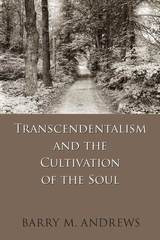
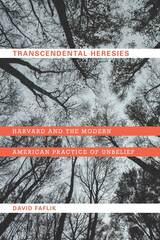
Transcendental Heresies draws on an expansive antebellum archive of period commentary and writings by transcendentalism's practitioners, including Ralph Waldo Emerson, Henry David Thoreau, Theodore Parker, Margaret Fuller, and the women of transcendentalism's second and third waves. From Boston to Concord to the heady environs of Harvard, the species of unbelief they practiced multiplied the religious possibilities of the era, expressing misgivings about traditional notions of divinity, flouting religion's customary forms, and ultimately encouraging spiritual questioning.
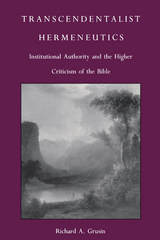
In the ongoing revision of American literary history, this traditional reading of the supposed anti-institutionalism of the Transcendentalists has been duly detailed and continually supported. Richard A. Grusin challenges both traditional and revisionist interpretations with detailed contextual studies of the hermeneutics of Ralph Waldo Emerson, Henry David Thoreau, and Theodore Parker. Informed by the past two decades of critical theory, Grusin examines the influence of the higher criticism of the Bible—which focuses on authorship, date, place of origin, circumstances of composition, and the historical credibility of biblical writings—on these writers. The author argues that the Transcendentalist appeal to the authority of the “self” is not an appeal to a source of authority independent of institutions, but to an authority fundamentally innate.
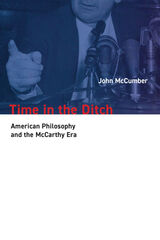
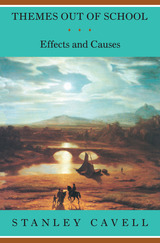
Fantasies of film and television and literature, flashes across the landscape of literary theory, philosophical discourse, and French historiography give Cavell his starting points in these twelve essays. Here is philosophy in and out of "school," understood as a discipline in itself or thought through the works of Shakespeare, Molière, Kierkegaard, Thoreau, Brecht, Makavejev, Bergman, Hitchcock, Astaire, and Keaton.
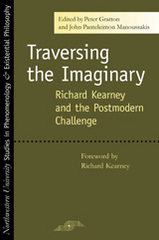
The book opens with Kearney's own "prelude" in which he traces his intellectual itinerary as it traverses the three imaginaries explored in the volume: the dialogical, the political, and the narrative. The interviews that follow the first section allow readers to listen in on conversations between Kearney and some of the most interesting and respected thinkers of our time—Noam Chomsky, Charles Taylor, Jacques Derrida, Paul Ricouer, and Martha Nussbaum—as they reveal new and unexpected aspects of their thought on stories and mourning, ethics and narrative, terror and religion, intellectuals and ideology. The next section, on the political imaginary, looks at Kearney's distinctive contribution to the political situation in Ireland and in Europe more generally; and in the last, on narrative, writers including David Wood, Terry Eagleton, and Mark Dooley focus on Kearney's novels as instances of narrative theory put into literary practice. Concluding with Kearney's postscript, an essay on "Traversals and Epiphanies in Joyce and Proust," the volume comes full circle, encompassing the full extent of Richard Kearney's engagement and offerings as a philosopher,
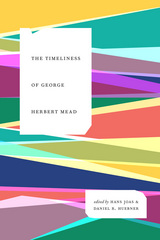
Edited by well-respected Mead scholars Hans Joas and Daniel R. Huebner, the volume as a whole makes a coherent statement that places Mead in dialogue with current research, pushing these domains of scholarship forward while also revitalizing the growing literature on an author who has an ongoing and major influence on sociology, psychology, and philosophy.
READERS
Browse our collection.
PUBLISHERS
See BiblioVault's publisher services.
STUDENT SERVICES
Files for college accessibility offices.
UChicago Accessibility Resources
home | accessibility | search | about | contact us
BiblioVault ® 2001 - 2024
The University of Chicago Press









